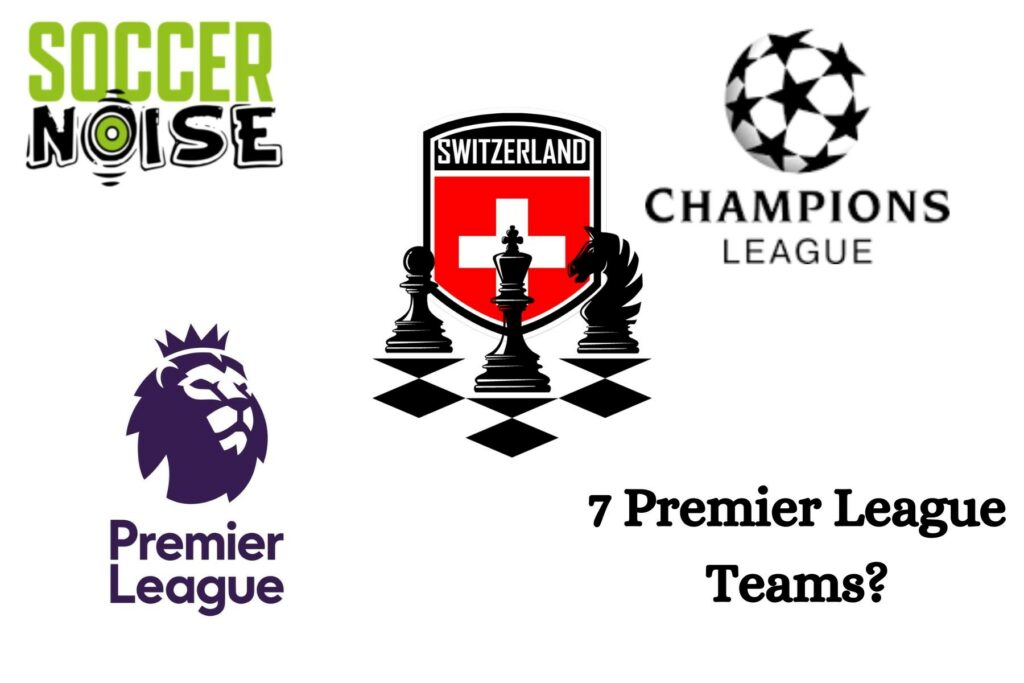With both the 2023-24 Premier League and UEFA Champions League campaigns under way, we thought it would be a good time to take a look at what the clubs are all competing for. No! Not silverware, that’s so 1990’s… European Champions League Places! With the format set to change next year we take a look at whether teams like trophy-less Spurs (just assuming) can still leave the season feeling they’ve won something.
How many Premier League teams can qualify for the UEFA Champions League? With the UEFA Champions League converting to the Swiss model and expanding to include 36 teams in the 2024-25 season, there’s an opportunity for more Premier League sides to qualify for the prestigious competition. In total it would be possible for 7 (seven) Premier League teams to be competing in the Champions League in the 2024-25 season. 4 as national association qualifiers, 1 as an extra awarded performance based place and 2 more as champions of the Champions & Europa Leagues respectively.

Now the chances of the Premier League being able to send 7 representatives are low, 5 is more realistic and 6 might not be as far fetched as you might think. Below we look at the details on the changes to the UCL and why it could be great news for Premier League teams.
What Premier League teams are competing in Europe this season? (2023-24)
This is a solid place to start. There are 3 major European Club competitions, the UEFA Champions League (UCL), The Europa League and the Europa Conference League. After the 2022-23 season finished the European places were divided up based on league position.

UEFA Champions League
Manchester City (Prem & UCL Champs)
Arsenal (2nd Premier League)
Manchester United (3rd Premier League)
Newcastle United (4th Premier League)
Europa League
Liverpool (5th Premier League)
Brighton (6th Premier League)
West Ham (Winners of the Europa Conference League)
Europa Conference League
Aston Villa (7th Premier League)
With the exception of West Ham winning the Conference League and qualifying for the Europa League through that, despite finishing 14th in the Premier League, this is a fairly standard European place allocation for the English top flight.
Unlike when Liverpool won the Champions League in 2005, while finishing 5th, Manchester City’s Champions League win did not qualify the English for a 5th UCL spot as they had already secured qualification through the league.
How many places in Europe will Premier League teams get next season? (2024-25)
As it stands the Premier League clubs will be fighting for a total of 7 standard places in European football next season. UEFA rules state that the Premier League is guaranteed four Champions League places, two Europa League places, and one Europa Conference League place. The same as they have for this season (2023-24).
However with the Champions League expanding and the Premier League performing better than ever relative to the rest of Europe, it is likely that the Premier League teams will be able to secure more places.
First of all, let us look at the competitive nature of the Premier League. For years there has been the “big six” of Man City, Man Utd, Arsenal, Chelsea, Tottenham and Liverpool. Last year saw Newcastle Utd throw their hat into the ring, backed by Saudi money, with a proper football man at the helm in Eddie Howe, they have already finished 4th grabbing a Champions League place for this season. In addition Brighton, despite selling off half their team for huge money this summer, seem better than ever and looking to build on last year’s 6th placed finish. A top four finish might be a bit far fetched for the South Coast side, but the point is, the Premier League has 6-8 top level teams capable of claiming one of the top 4 spots. Even with Chelsea’s rocky start to the season, you can’t rule them out.

This makes it infinitely likely that if one (or two) of Man City, Arsenal, Man Utd, Newcastle, Liverpool, Brighton or West Ham were to win their respective European competition this season, they may well also find themselves outside of the top 4. With the exception of Manchester City, the odds are probably close to 50/50.
In particular Liverpool, Brighton and West Ham have what it takes to win the Europa League and could well see themselves falling outside the top 4 or 5 in the Premier League.
If this was to happen the Premier League would gain an extra spot for each of the UCL or Europa League winners who didn’t make the top 4 through the League.
In addition, the UEFA Champions League’s new format is expanding to 36 teams in a ‘Swiss League’ format. This allows for an additional UCL spot to be allocated to two countries whose clubs collectively perform the best across all UEFA competitions this season. In 5 of the past 6 seasons and 7 of the past 11, the Premier League would have gained this extra spot. Chances are high that this season will be no different.
In addition to the Premier League’s 4 UCL spots, they may well have an extra 5th based on performance and in addition if a club from outside the top 5 then wins either the UCL or the Europa League up to 2 more UCL places would be available. This would be in addition to the 2 Europa League and 1 Conference League spot allocated to Premier League sides.
In total 10 of the 20 Premier League clubs could be competing in Europe next season.
What is the Swiss Model for the Champions League?
The UEFA Champions League is set to undergo a significant transformation starting from the 2024-25 season. The traditional group stage will be replaced by a league phase, which is commonly referred to as the Swiss model. The term Swiss model comes from chess where each entrant does not play all of the others. A big variation is that in chess the next opponent is decided after each set of games, whereas in the Champions League all first-round fixtures will be known at the start of the season.
In this new format the 36 teams will be split into 4 pots of 9 teams, each team will play eight matches in the league phase with 4 played at home and 4 played away. The opponents will be selected “randomly” based on seeding. This will mean each qualifying team will play a minimum of 8 matches, rather than the current minimum of 6. After the initial rounds, the top eight teams will automatically proceed to the knockout stage. Sides in 9th-24th will enter a two-legged playoff fixture for the remaining eight places ahead of the traditional round of 16.
This change has been met with mixed reactions from fans and experts alike. Some argue that the Swiss model will provide more competitive matches and reduce the predictability of the group stage. However, others have expressed concerns about the potential dilution of the competition and the impact on the quality of matches.
The aim is to inject more excitement and unpredictability into the Champions League group stage. It remains to be seen how this format will be received by players, coaches, and fans, but one thing is for sure: it will bring about a new era in European club football.
